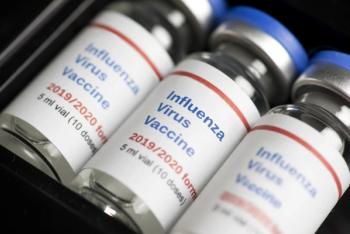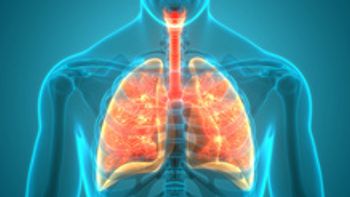
Increasing their numbers could help to improve both trial enrollment diversity and improve patient outcomes, according to research published in Circulation: Heart Failure.


Increasing their numbers could help to improve both trial enrollment diversity and improve patient outcomes, according to research published in Circulation: Heart Failure.

Differences in heart failure mortality over the previous 2 decades can partially be explained by social determinants of health prevalent in the patients’ counties.

Widely accepted guidelines that patients with cardiac diseases still get at least 150 minutes of exercise each week may need to adjust their accelerometer data for patients with heart failure.

Reports of Medicare Advantage (MA) patients receiving higher-quality care for their cardiovascular disease prompted this comparison study of patients with heart failure enrolled in Medicare fee-for-service plans (FFS) and MA plans.

Recent results show a consistent overall prevalence of ambulatory heart failure, but that Blacks still have a greater prevalence of the condition.

Data presented during the European Society for Cardiology 2020 Congress were a follow-up to the presentation of VERTIS CV at the American Diabetes Association Scientific Sessions in June.

In research presented at the European Society of Cardiology 2020 Congress, vaccines for influenza and pneumonia showed effectiveness at reducing death from heart failure.

Evidence shows a possible connection between chronic exposure to traffic noise and atherosclerosis progression, but not major cardiovascular events such as acute myocardial infarction and congestive heart failure, until now.

Results from a recent study examining thirst among patients with heart failure show that most had fluid retention and close to half were frequently thirsty, which is considered troublesome in these patients.

Although the effects of stress and anger on ischemic heart disease and arrhythmia are well known, they are less established in heart failure, particularly those with reduced ejection fraction.

There was an almost 99% increase in the 1-year survival rate among candidates on the United Network for Organ Sharing waitlist for a heart transplant between 1987-1990 and 2011-2017.

To reduce poor outcomes from heart failure care disparities, Danish researchers probed the link between individual socioeconomic factors and care quality for patients with reduced ejection fraction.

Being male and Black, having comorbidities, and admission to a nonteaching hospital were linked to greater chances of subsequent readmission for heart failure in a recent Journal of Clinical Hypertension study.

Prevention and early screening efforts need to be stepped up for patients with acute heart failure who contract pneumonia while hospitalized.

Evidence may support a greater comorbidity burden among patients with heart failure with preserved ejection fraction (HFpEF) or reduced ejection fraction (HFrEF), although this finding was shown to be worse among women with HFpEF.

Results from a racially diverse clinical trial show that despite bringing palliative care to rural and minority populations with heart failure facing hurdles to accessing such care, using telehealth delivery methods to improve access does not improve the mood or quality of life of patients or their caregivers.

Researchers interviewed US specialists in an effort to see how conscious and unconscious thoughts about race and gender contributed to an unequal allocation of various treatments for heart failure.

The company said FDA has set a date of January 20, 2021, for action under the Prescription Drug User Fee Act.

The designation would be to reduce the risk of heart failure or cardiovascular death in patients who have suffered an acute MI, which is a known cause of heart failure.

Stress cardiomyopathy has presented in more patients with acute coronary syndrome during the coronavirus disease 2019 pandemic, despite none having positive antibody results for the virus, compared with several measured periods before the pandemic.

There was a greater incidence of heart disease, both cardiovascular and ischemic, among women and men who survived childhood maltreatment, according to study results published Monday from the United Kingdom.

Palliative medicine consultations for heart failure were linked with increased rates of advance directives being included in a patient’s electronic medical record, according to study results published this month in Journal of Maine Medical Center.

Women with heart disease during their first pregnancy had a higher rate of maternal cardiac events and neonatal complications, especially if they also had pulmonary hypertension, according to study findings published in BMC Pregnancy and Childbirth. The study also identified factors that can predict which pregnant women with heart disease will develop heart failure.

At the 5-year mark, half of patients hospitalized for heart failure typically have died. These study authors set out to determine if a wearable sensor can better predict who is at risk for heart failure so that the risk can be modified.

Plant-based diets have been shown to improve both ejection fraction and cardiac remodeling in patients with heart failure among a recent review of interventional studies, thereby lessening the adverse effects of obesity, hyperlipidemia, hypertension, and diabetes.

259 Prospect Plains Rd, Bldg H
Cranbury, NJ 08512
© 2025 MJH Life Sciences®
All rights reserved.
